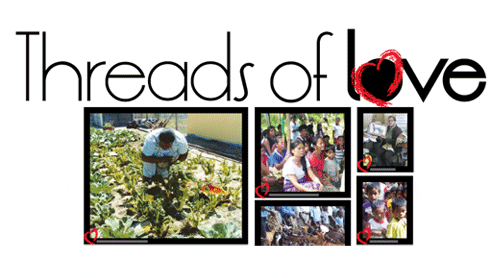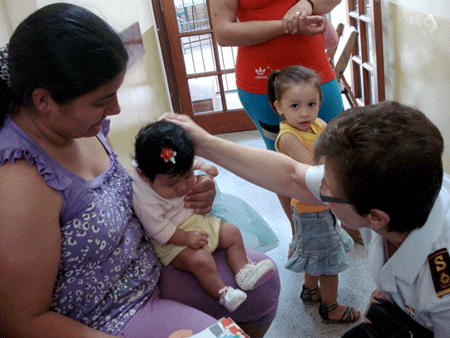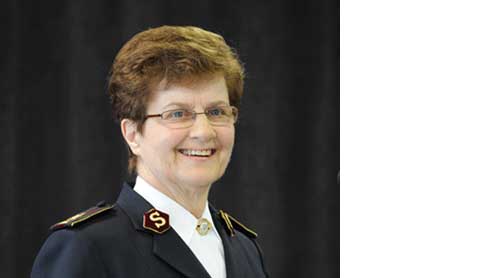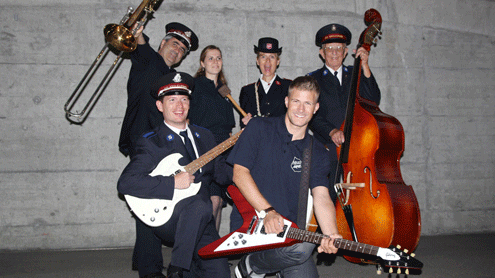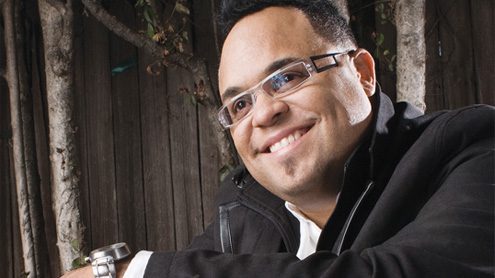Don’t let anyone think less of you because you are young. Be an example to all believers in what you say, in the way you live, in your love, your faith, and your purity (1 Tim. 4:12 NLT).
Throughout the world, The Salvation Army seeks to make a difference in the lives of women and children, often underserved populations.
Every year, women throughout the Western Territory participate in a territorial project designed to help these individuals in locations where their needs are great. Each division undertakes various fundraising activities and sends the money to territorial headquarters to support the projects.
Typically the projects develop from a visit to the country by a Western Territory officer, usually a cabinet member, or from the suggestion of a Western officer stationed there. This year, in the case of the Philippines, Commissioner Carolyn Knaggs, territorial president of women’s ministires, knew of the situation at Palawan. The Salvation Army’s International Headquarters makes other needs known through its small projects list.
For 2011-2012, the Western Territory hopes to raise $40,500 to support four projects, in South Africa, Haiti, Federated States of Micronesia and the Philippines.
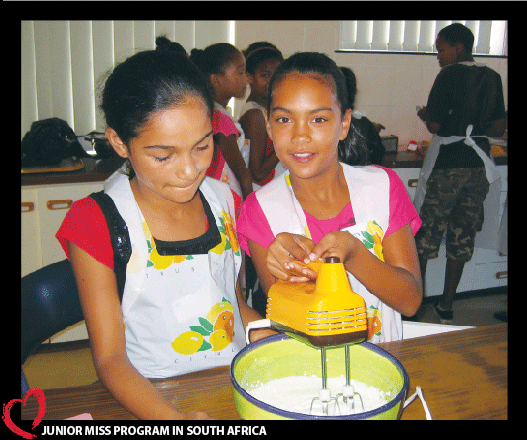 Western Cape Division, South Africa
Western Cape Division, South Africa
Junior Miss program
Over the past three years, efforts in Southern Africa’s Western Cape Division have focused on girls and young women. This year the division began developing Junior Miss groups for girls 10-15 years old.
To help grow the groups, the division planned several divisional events. At the first session 47 girls and 12 leaders attended. Four workshops took place on a Saturday: cooking (they then shared the meal), crafts, dancing/prayerobics, and a discussion group on human trafficking and health and hygiene issues.
In most cases, women in South Africa are the backbone of their family and community. Unfortunately, they are also—in most cases—the victims of abuse—physical, emotional and sexual. Reports estimate that one out of every three has been exposed to some form of abuse in her childhood. Various addictions are becoming an issue among more girls and young women, because substance abuse numbs the pain and offers an escape from reality—even if just for a short while.
Due to the increase of HIV/AIDS and other factors, young women in South Africa are taking on more responsibilities than ever before. In 2000, 73 percent of South Africa’s population was under the age of 15. So it is often younger women who are forced to bear great responsibility, and also great pain, beyond their years.
 Carehaven home for abused women
Carehaven home for abused women
The government’s social services department supports The Salvation Army’s Carehaven home. The Salvation Army, however, must develop the skills program in order to continue receiving social service dollars. The salary for the person leading this program should be paid through government social services, but The Salvation Army must cover most of the expenses for materials and resources.
The program provides instruction in sewing, beading, cooking and gardening—skills the women could one day use to maintain a regular income.
Goat project in Bainet, Bellamy and Lilette, Haiti
Bainet is a town on the south coast of Haiti, five hours from Port-au-Prince. The Salvation Army corps here operates a primary school for 200 children and sponsors a micro-credit enterprise project for 80 women that had a 100 percent repayment rate over the last year.
Bellamy is a mountain village, a two-hour walk from Bainet. The Salvation Army outpost here operates a primary school for 120 children.
Lilette is a mountain village, another two-hour walk from Bainet, in the opposite direction from Bellamy, where The Salvation Army outpost operates a primary school for 60 children.
Livelihood income generation projects are very effective in providing families with opportunities to send their children to school; the cost is $10-$25 per year. The officer in Bainet supervises both Bellamy and Lilette. Since he ran a successful goat project in his previous appointment, the project has no training or set-up expenses. Goats can be purchased for US$50 each. Each family receives two goats and returns five baby goats to the project over the next three years. The family is responsible for the feeding, medical care and breeding of the goats, and the rest of the offspring belong to the family.
A $500 gift covers the start-up costs for five families. The five baby goats from the five families over three years will provide goats for an additional 12 families, and this number increases as the project continues.
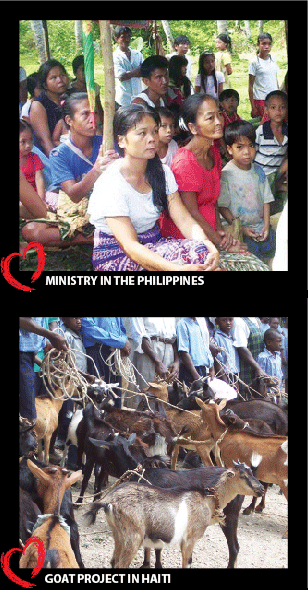 Ministry in Chuuk, Federated States of Micronesia
Ministry in Chuuk, Federated States of Micronesia
The Chuuk people have a new corps building, but they need to equip it so that they can worship and hold meetings there.
Among the items they need are a large capacity stove, large capacity refrigerator, counter and tables, large cooking pots and pans, dishes, serving bowls, silverware, cooking utensils, cupboards, shelving, washer and dryer, and kitchen supplies.
Ministry in the Philippines
Nearly 10 years ago, with the planting of Puerto Princesa Corps, The Salvation Army in the Philippines began a work on the isolated island of Palawan. The officers there, Captains Jun and Edith Apayart, have shared the gospel with people from several tribes in the mountains. Five individuals who became soldiers received training and then returned to their respective villages to bring the gospel and commence the work of The Salvation Army in their villages. As a result, three corps plants are underway in these villages with good attendance and growth.
Life for the indigenous people who live in the remote, mountainous region in the southern part of Palawan is difficult to imagine. These indigenous people are called Palaweños, natives of Palawan, location of the Tabun Cave.
Through education, The Salvation Army hopes to help the children break the poverty cycle that entraps these tribes. Approximately 100-plus children need this support.
Captains Apayart want to assist the children of one of the tribes who struggle to get any schooling at all, due to the huge walking distance through difficult terrain to the school. The children have no footwear, raincoats or umbrellas needed for protection when making the trek. They also do not possess resources for enrollment, proper clothes or school equipment.
Together, Salvationists and friends of The Salvation Army can make a beautiful tapestry of love to the Lord by giving to the Women’s Ministries Territorial Project for 2011-2012. You can help raise the goal of $40,500.
Individuals who wish to contribute may send a check to The Salvation Army, 180 East Ocean Blvd., Long Beach, CA 90802, designating it for Territorial Women’s Ministries projects.











